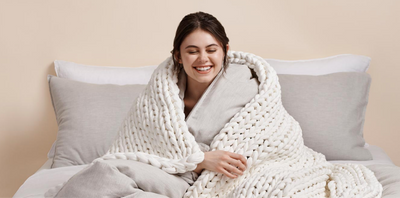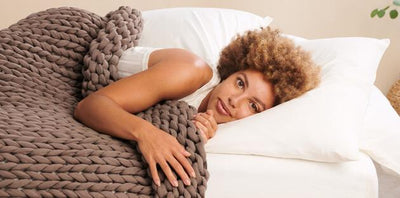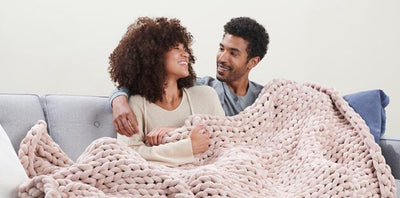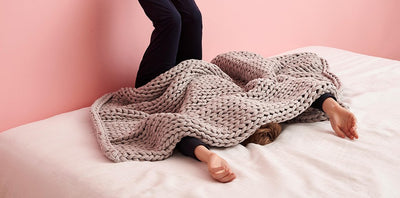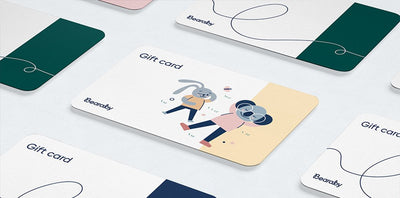Is Sleeping Without a Pillow Bad or Can It Be Good?
Sleeping without a pillow can be bad for many people because it removes support for the head, causing the neck to over-extend. This is especially difficult for those with pre-existing spine conditions or for those with sleep apnea. However, stomach sleepers may benefit from a lack of a pillow.

Bearassentials
Sleeping without a pillow can be hard on the neck for back and side sleepers.
Stomach sleepers may benefit from removing the pillow as extra cushion height can push the neck too far back.
Removing the pillow can also aggravate snoring issues, but some claim that it helps improve frizzy hair and facial wrinkles.
Did you know?
Geishas in Japan traditionally sleep on ‘takamakura,’ a type of wooden support that elevates the head like a pillow without messing up their carefully made hair.
Having a tough time finding the right pillow for you? Considering tossing them all out and going without one altogether?
With people looking for natural solutions and ways to get closer to nature, it’s no surprise that many are considering doing away with head cushions. But is sleeping without a pillow bad?
Given the spine’s natural curve, taking away the added height can be tough for some, but some will find it beneficial. How beneficial it is depends on your preferred sleeping position.
What Happens if You Sleep Without a Pillow
Humans have been using pillows for so long that it may feel like they’ve always been here, and there’s a good reason for that.
Some of the earliest pillows were more like pedestals that allowed well-made hair and makeup to stay in place while keeping the neck in a comfortable position. Since then they’ve evolved into different shapes, sizes and filling types.
But what happens if you sleep without a pillow?
Spine and Back Posture
One of the main reasons we use pillows is to support the head. Whether you’re sleeping on your back or your side they can help maintain a neutral posture, similar to how your head would be positioned while standing. Taking the pillow away impacts this for better or for worse.
Sleep Wrinkles
One of the main downsides to pillows and sleep in general is that it can cause wrinkles in some. Studies have shown that they can actually create their own special type of wrinkle separate from expression wrinkles. Many pillows can make this worse while specialty pillows can limit the effects.
Overall Sleep Patterns
Many people love their pillows. They keep them comfy and cozy throughout the night, like a soft cloud that cradles them to sleep. For many of these people, taking the pillow away can lead to discomfort that doesn’t go away. This discomfort can interrupt sleep, leaving you tired in the morning.
Breathing
Sleep apnea is one of the most common sleep disorders there is, and pillowless sleeping may make it worse. The lack of cushion means that the head leans back further, making it easier for the soft palate to block the throat. It can even change the way those without the condition breathe.

Potential Benefits of Sleeping Without a Pillow
Every person is a little different, and the way we sleep is one of the best examples of that. With that said, you’re most likely to benefit from sleeping without a pillow if you tend to sleep on your stomach.
The reason people in that position can benefit from a lack of a pillow is because the added height can push the head too far back, placing the neck in an unnatural position. Removing the pillow gives these people the best shot at a decent posture throughout the night. This is in spite of belly sleeping being hard on the back overall.
For everyone else, there are a few touted benefits of ditching the pillow:
- Better posture for stomach sleepers and possibly even back sleepers
- A more comfortable sleep for some
- Less face wrinkles
- Less frizzy hair
Unfortunately, there hasn’t been much research done on the topic, so take the benefits with a grain of salt and see what works for you.
Problems With Sleeping Without a Pillow
The potential benefits of sleeping without a pillow come with a long list of drawbacks. As with those benefits, the drawbacks haven’t been studied very well and may apply differently depending on the person.
As with any sleep advice, some personal experimentation may be necessary to find out the truth for yourself. With that said, here are some common complaints of going pillowless:
- Neck and back pain. The spine naturally curves, but for many people, taking the pillow away forces the head too far back. This can lead to issues down to the lower back.
- Breathing issues. Sleeping sitting up can work wonders for some with sleep apnea, and removing the pillow can do the opposite.
- Acid reflux and GERD. Pillows can make the angle for acid reflux worse just as much as they can for breathing.
- Poor sleep. Many will find that sleeping without a pillow is too uncomfortable. In those cases, sleep can get interrupted.
Who Should Not Sleep Without a Pillow
Given the possible drawbacks of sleeping without a pillow, there are a few categories of people who should probably avoid it. However, in most cases there’s no harm in trying it out to decide for yourself.
Side Sleepers
If you tend to sleep on your side, you’re almost guaranteed to find it hard to toss the cushion away. This is because side sleepers need a thicker, firmer pillow to keep their head from sagging down and causing stress to the neck. The lack of a head pillow can also cause numbness and pain in the arms and lower back
Our Cuddler body pillow can help by relieving tension in the shoulder and hip joints, but sleeping without a pillow may make this an uphill battle.
Some Back Sleepers
For the back sleepers out there, removing the pillow may not cause as much strain on the neck or lower back, but it depends a lot on the person. In many cases it will force the user's neck too far back. This could cause problems from the neck to the hips.
Sleep Apnea Patients
Another way that back sleepers may suffer is if they’re heavy snorers or if they have sleep apnea. Remaining in that position can already block the airway, and taking away the pillow just throws another obstacle up
Those With Medical Conditions
Pre-existing conditions like cervical spondylosis or herniated discs may make sleeping without a pillow bad for them by definition. The extra pressure may be too much in these cases, and even gradually moving toward a pillow-less goal could be out of the question.
If the problem is lumbar spine pain, lumbar or bolster pillows like our Cuddling may help relieve the pressure on the lower back by either providing support directly to the area or by raising the knees.

Tips for Starting To Sleep Without a Pillow
If you’ve weighed the options and are looking to start fresh with no pillow, diving straight in can be challenging. But there are a few ways to make the transition a little easier.
Try Smaller Pillows First
A 2011 study published in Physiotherapy Canada dove into the subject of pillow types and sleep quality. It asked participants to compare their own pillows from home to five different types provided by the researchers.
In the end, over 50% of the 106 participants reported discomfort and poor quality sleep when using their own pillows. The study concluded that, “Many participants appear to have made poor pillow choices.”
Because of that, it’s possible that many people looking to go pillowless just don’t have the right type. So when looking to make the transition, try going smaller first as it might be a better fit for your neck.
Use Support Pillows
Another way to progress toward no head pillows is by supporting the rest of your body properly. That might start with slipping a bolster pillow like our Cuddling under the knees to ease your spine’s curve. The Cuddler is another option, whether you’re a side sleepers looking to take pressure off the joints or a back sleeper trying to support the back.
FAQs
Got more questions about sleeping without a pillow? Here are some of the common ones and their answers.
Is Sleeping Without a Pillow Good for Your Hair?
There’s currently no scientific evidence that supports the idea that sleeping without a pillow is good for your hair. Your head will be resting on some surface while you sleep regardless of whether that’s a pillow or a mattress, so it’s unlikely that switching one out for the other would help with hair health.
The only potential exception to this rule might be pillows specifically designed to make contact with certain parts of the head. However, in this case sleep quality may be sacrificed.
Does Sleeping Without a Pillow Help Breathing?
Sleeping without a pillow does not help breathing. In fact, it can make it much more difficult when combined with back sleeping on a flat surface since it tilts the head back, allowing the soft palate to block the airway more than it might otherwise do.
This is one of the reasons that doctors recommend sleep apnea patients and those with more minor snoring problems stay away from back sleeping.
Can Sleeping Without a Pillow Help Posture?
There’s no current evidence that supports the idea that sleeping without a pillow can help posture. On the other hand, there’s a lot of conflicting evidence regarding how effective pillows are and what types are the best.
The best way to decide whether a sleeping setup is working for you is to monitor your symptoms of pain and discomfort before and after sleeping. If you feel better off in the morning without a pillow it might be right for you.
Can Sleeping Without a Pillow Alleviate Neck Pain?
It’s doubtful that sleeping without a pillow would alleviate neck pain since removing the pillow would drop the head back, forcing the neck into an even more unnatural position. Remaining this way throughout the night could cause more pain come morning
On the other hand, pillows that are too big for back sleepers can often lead to neck pain, so choosing something smaller or going from two pillows to one may help with the symptoms
Conclusion
There are many health and wellness trends leading to a more natural way of life, and sleeping without a pillow is one on the rise. Unfortunately there’s not a lot of evidence that suggests it’s good or bad, so you’ll need to decide that for yourself.
If you want to give the pillow the boot, you may want to consider supporting your back with the Cuddler or Cuddling. Support pillows like these could be the bridge helping you achieve a comfy, cozy, pillow-less sleep.
